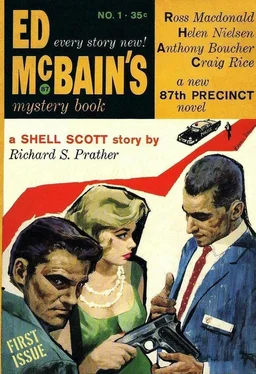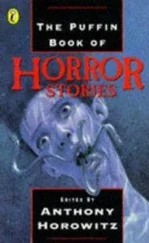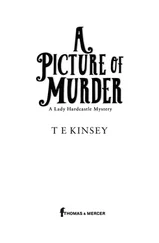Anthony Boucher - Ed McBain’s Mystery Book, No. 1, 1960
Здесь есть возможность читать онлайн «Anthony Boucher - Ed McBain’s Mystery Book, No. 1, 1960» весь текст электронной книги совершенно бесплатно (целиком полную версию без сокращений). В некоторых случаях можно слушать аудио, скачать через торрент в формате fb2 и присутствует краткое содержание. Город: New York, Год выпуска: 1960, Издательство: Pocket Books, Жанр: Детектив, на английском языке. Описание произведения, (предисловие) а так же отзывы посетителей доступны на портале библиотеки ЛибКат.
- Название:Ed McBain’s Mystery Book, No. 1, 1960
- Автор:
- Издательство:Pocket Books
- Жанр:
- Год:1960
- Город:New York
- ISBN:нет данных
- Рейтинг книги:5 / 5. Голосов: 1
-
Избранное:Добавить в избранное
- Отзывы:
-
Ваша оценка:
- 100
- 1
- 2
- 3
- 4
- 5
Ed McBain’s Mystery Book, No. 1, 1960: краткое содержание, описание и аннотация
Предлагаем к чтению аннотацию, описание, краткое содержание или предисловие (зависит от того, что написал сам автор книги «Ed McBain’s Mystery Book, No. 1, 1960»). Если вы не нашли необходимую информацию о книге — напишите в комментариях, мы постараемся отыскать её.
Ed McBain’s Mystery Book, No. 1, 1960 — читать онлайн бесплатно полную книгу (весь текст) целиком
Ниже представлен текст книги, разбитый по страницам. Система сохранения места последней прочитанной страницы, позволяет с удобством читать онлайн бесплатно книгу «Ed McBain’s Mystery Book, No. 1, 1960», без необходимости каждый раз заново искать на чём Вы остановились. Поставьте закладку, и сможете в любой момент перейти на страницу, на которой закончили чтение.
Интервал:
Закладка:
“I don’t drink beer,” Anderson said flatly.
“Neither do I,” Meyer answered.
“Besides, we do call the police whenever we get a very large deposit, unless the depositor is one of our regular customers. I did not feel that these deposits warranted such a call.”
“Thank you, Mr. Anderson,” Meyer said. “We have a court order here. We’d like to open the box Miss Davis rented.”
“May I see the order, please?” Anderson said. Meyer showed it to him. Anderson sighed and said, “Very well. Do you have Miss Davis’s key?”
Carella reached into his pocket. “Would this be it?” he said. He put a key on the desk. It was the key that had come to him from the lab together with the documents they’d found in the apartment.
“Yes, that’s it,” Mr. Anderson said. “There are two different keys to every box, you see. The bank keeps one, and the renter keeps the other. The box cannot be opened without both keys. Will you come with me, please?”
He collected the bank key to safety-deposit box number 375 and led the detectives to the rear of the bank. The room seemed to be lined with shining metal. The boxes, row upon row, reminded Carella of the morgue and the refrigerated shelves that slid in and out of the wall on squeaking rollers. Anderson pushed the bank key into a slot and turned it, and then he put Claudia Davis’s key into a second slot and turned that. He pulled the long, thin box out of the wall and handed it to Meyer. Meyer carried it to the counter on the opposite wall and lifted the catch.
“Okay?” he said to Carella.
“Go ahead.”
Meyer raised the lid of the box.
There was $16,000 in the box. There was also a slip of notepaper. The $16,000 was neatly divided into four stacks of bills. Three of the stacks held $5,000 each. The fourth stack held only $1,000. Carella picked up the slip of paper. Someone, presumably Claudia Davis, had made some annotations on it in pencil.

“Make any sense to you, Mr. Anderson?”
“No, I’m afraid not.”
“She came into this bank on July fifth with twenty thousand dollars in cash, Mr. Anderson. She put a thousand of that into a checking account and the remainder into this box. The dates on this slip of paper show exactly when she took cash from the box and transferred it to the checking account. She knew the rules, Mr. Anderson. She knew that twenty grand deposited in one lump would bring a call to the police. This way was a lot safer.”
“We’d better get a list of these serial numbers,” Meyer said.
“Would you have one of your people do that for us, Mr. Anderson?”
Anderson seemed ready to protest. Instead, he looked at Carella, sighed, and said, “Of course.”
The serial numbers didn’t help them at all. They compared them against their own lists, and the out-of-town lists, and the FBI lists, but none of those bills was hot.
Only August was.
5
Stewart City hangs in the hair of Isola like a jeweled tiara. Not really a city, not even a town, merely a collection of swank apartment buildings overlooking the River Dix, the community had been named after British royalty and remained one of the most exclusive neighborhoods in town. If you could boast of a Stewart City address, you could also boast of a high income, a country place on Sands Spit, and a Mercedes Benz in the garage under the apartment building. You could give your address with a measure of snobbery and pride — you were, after all, one of the elite.
The dead girl named Claudia Davis had made out a check to Management Enterprise, Inc., at 13 Stewart Place South, to the tune of $750. The check had been dated July 9, four days after she’d opened the Seaboard account.
A cool breeze was blowing in off the river as Carella and Hawes pulled up. Late-afternoon sunlight dappled the polluted water of the Dix. The bridges connecting Calm’s Point with Isola hung against a sky awaiting the assault of dusk.
“Want to pull down the sun visor?” Carella said.
Hawes reached up and turned down the visor. Clipped to the visor so that it showed through the windshield of the car was a hand-lettered card that read POLICEMAN ON DUTY CALL — 87TH PRECINCT. The car, a 1956 Chevrolet, was Carella’s own.
“I’ve got to make a sign for my car,” Hawes said. “Some bastard tagged it last week.”
“What did you do?”
“I went to court and pleaded not guilty. On my day off.”
“Did you get out of it?”
“Sure. I was answering a squeal. It’s bad enough I had to use my own car, but for Pete’s sake, to get a ticket!”
“I prefer my own car,” Carella said. “Those three cars belonging to the squad are ready for the junk heap.”
“ Two ,” Hawes corrected. “One of them’s been in the police garage for a month now.”
“Meyer went down to see about it the other day.”
“What’d they say? Was it ready?”
“No, the mechanic told him there were four patrol cars ahead of the sedan, and they took precedence. Now how about that?”
“Sure, it figures. I’ve still got a chit in for the gas I used, you know that?”
“Forget it. I’ve never got back a cent I laid out for gas.”
“What’d Meyer do about the car?”
“He slipped the mechanic five bucks. Maybe that’ll speed him up.”
“You know what the city ought to do?” Hawes said. “They ought to buy some of those used taxicabs. Pick them up for two or three hundred bucks, paint them over, and give them out to the squads. Some of them are still in pretty good condition.”
“Well, it’s an idea,” Carella said dubiously, and they entered the building. They found Mrs. Miller, the manager, in an office at the rear of the ornate entrance lobby. She was a woman in her early forties with a well-preserved figure and a very husky voice. She wore her hair piled on the top of her head, a pencil stuck rakishly into the reddish-brown heap. She looked at the photostated check and said, “Oh, yes, of course.”
“You knew Miss Davis?”
“Yes, she lived here for a long time.”
“How long?”
“Five years.”
“When did she move out?”
“At the end of June.” Mrs. Miller crossed her splendid legs and smiled graciously. The legs were remarkable for a woman of her age, and the smile was almost radiant. She moved with an expert femininity, a calculated, conscious fluidity of flesh that suggested availability and yet was totally respectable. She seemed to have devoted a lifetime to learning the ways and wiles of the female and now practiced them with facility and charm. She was pleasant to be with, this woman, pleasant to watch and to hear, and to think of touching. Carella and Hawes, charmed to their shoes, found themselves relaxing in her presence.
“This check,” Carella said, tapping the photostat. “What was it for?”
“June’s rent. I received it on the tenth of July. Claudia always paid her rent by the tenth of the month. She was a very good tenant.”
“The apartment cost seven hundred and fifty dollars a month?”
“Yes.”
“Isn’t that high for an apartment?”
“Not in Stewart City,” Mrs. Miller said gently. “And this was a riverfront apartment.”
“I see. I take it Miss Davis had a good job.”
“No, no, she doesn’t have a job at all.”
“Then how could she afford...?”
“Well, she’s rather well-off, you know.”
“Where does she get the money, Mrs. Miller?”
“Well...” Mrs. Miller shrugged. “I really think you should ask her , don’t you? I mean, if this is something concerning Claudia, shouldn’t you...?”
Читать дальшеИнтервал:
Закладка:
Похожие книги на «Ed McBain’s Mystery Book, No. 1, 1960»
Представляем Вашему вниманию похожие книги на «Ed McBain’s Mystery Book, No. 1, 1960» списком для выбора. Мы отобрали схожую по названию и смыслу литературу в надежде предоставить читателям больше вариантов отыскать новые, интересные, ещё непрочитанные произведения.
Обсуждение, отзывы о книге «Ed McBain’s Mystery Book, No. 1, 1960» и просто собственные мнения читателей. Оставьте ваши комментарии, напишите, что Вы думаете о произведении, его смысле или главных героях. Укажите что конкретно понравилось, а что нет, и почему Вы так считаете.












